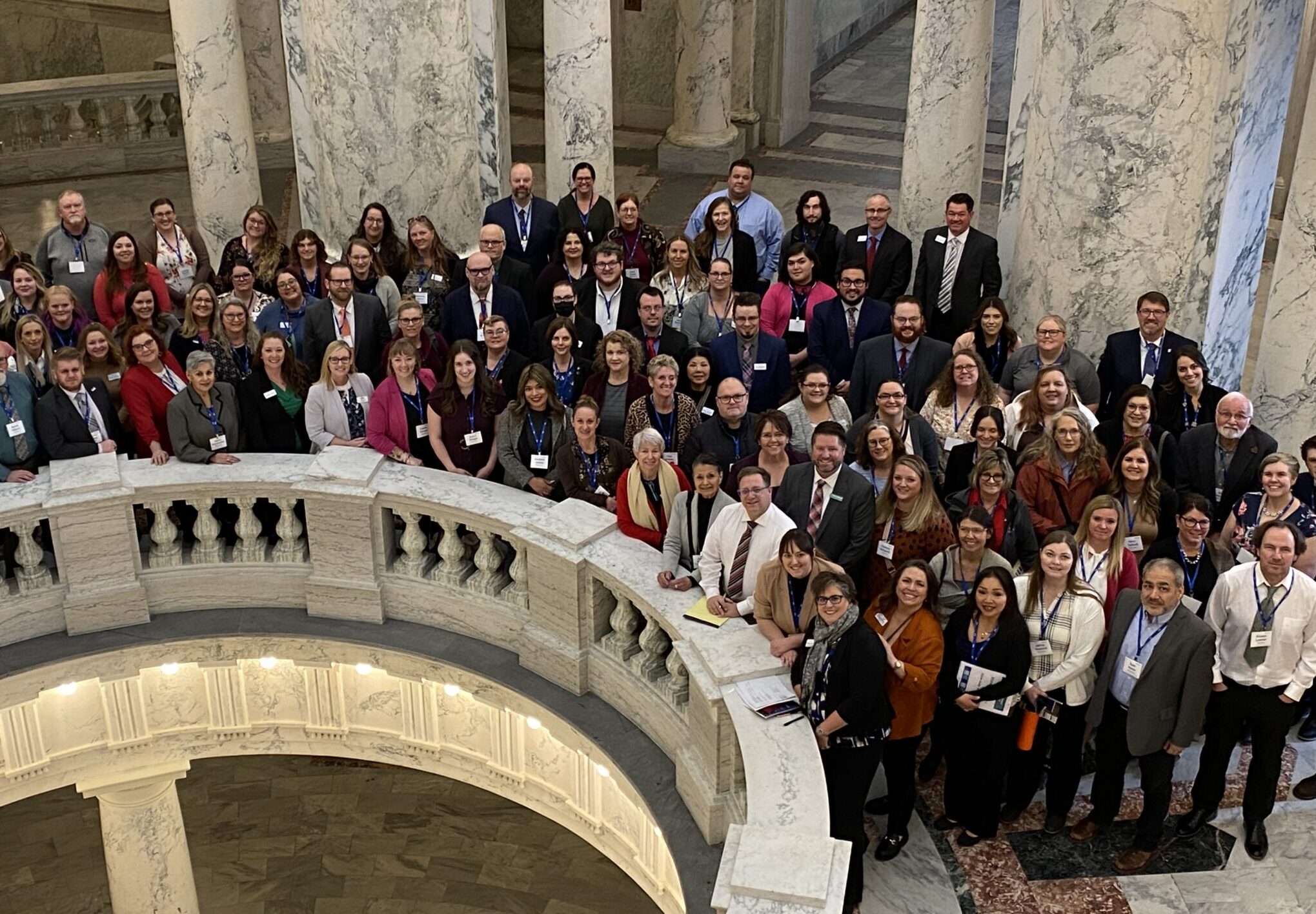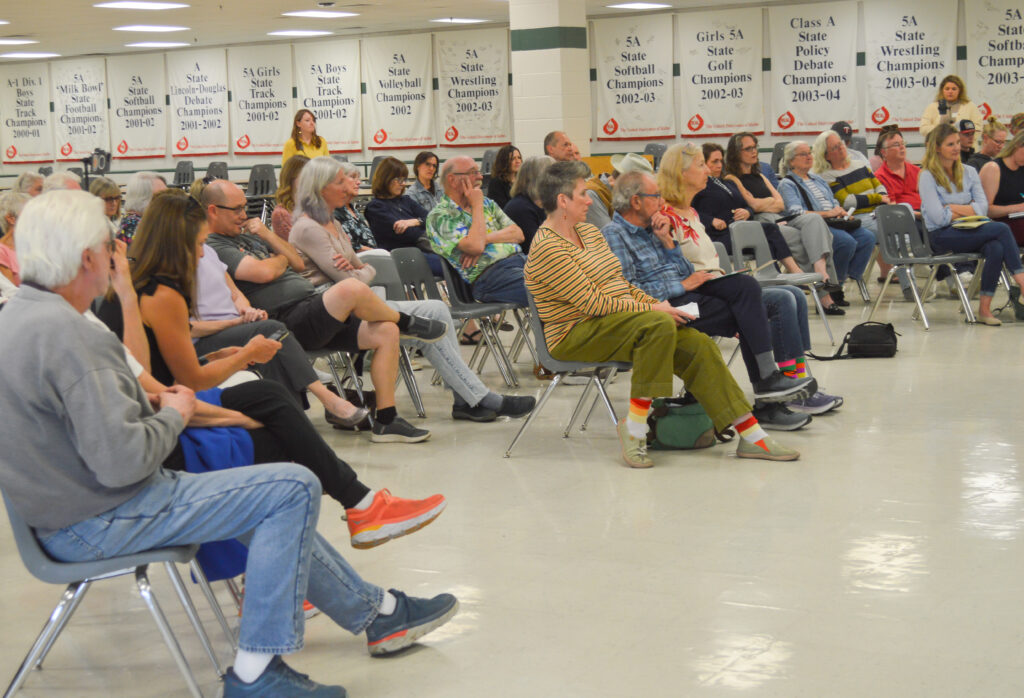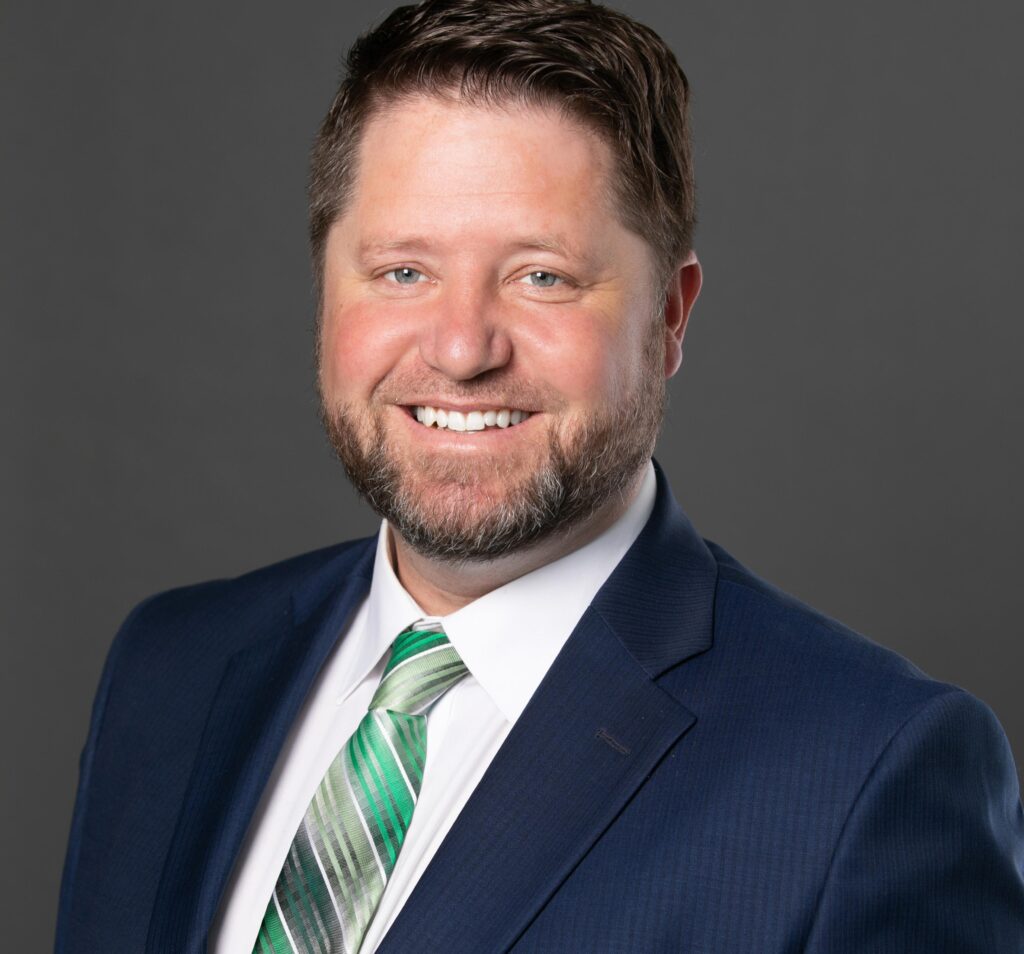About 170 Idaho Education Association members from all across Idaho brought their education expertise to the policy discussions happening at the Idaho Statehouse on Monday as part of IEA’s Lobby Day 2024.
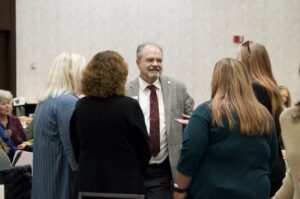
Sen. Dave Lent (R-Idaho Falls) visits with IEA members during Sunday’s Lobby Day Dinner and Training.
Just two weeks into the 2024 legislative session, lawmakers are already discussing a number of key education issues that will impact public schools and the ability of IEA members and other educators to do their job. Facilities funding, student mental health, vouchers, library policing and union-busting bills are among the many issues IEA members talked to lawmakers about on Monday.
IEA Lobby Day — traditionally held every year during the Martin Luther King, Jr. holiday — is perhaps Idaho’s most important day of advocacy for public education. It’s a unique opportunity for Idaho policymakers to hear directly from energized educators about the support needed to create the free and equitable public schools that Idaho students deserve.
“Lobby Day is all about putting Idaho’s most important education experts, IEA members, in front of policymakers to tell them first-hand about educator experiences in classrooms and schools, and the needs they have to create the best public schools possible,” said Layne McInelly, IEA’s president. “There simply is no substitute for policymakers hearing directly from our members. They are the best lobbyists we have.”
Critchfield Speaks at Sunday Dinner and Training
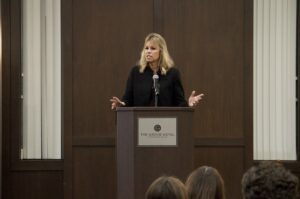
Idaho Superintendent of Public Instruction Debbie Critchfield delivers the keynote address at IEA’s Lobby Day 2024 dinner and training.
Lobby Day participants, all members of IEA’s Political Action Committee for Education or PACE, gathered for the traditional Lobby Day Dinner and Training on Sunday night. They broke bread with more than 20 pro-education lawmakers and policymakers eager to create connections with educators and understand more about IEA’s education policy priorities.
Attendees heard from Idaho Teacher of the Year Trent Van Leuven, an IEA member and career technical education teacher in Mackay, and Idaho Superintendent of Public Instruction Debbie Critchfield, who delivered keynote remarks.
Critchfield focused her remarks on her efforts to improve public schools and the work environment for educators — drawing several rounds of applause.
Critchfield highlighted a $3 million line item in her proposed K-12 budget to pay student teachers. She said doing so should be part of a broader focus on student- and early-career educators.
“How do we prepare our teachers, before they get to the classroom, and how do we provide the appropriate mentorship once they are there?” Critchfield asked the gathering. She pointed out that some statistics show that 30% of all new teachers leave the profession within three years. “That is not acceptable. We’re going to struggle to reach our student achievement levels if we are losing that number of teachers within the first few years.”
She discussed the growing need for a statewide response to student mental wellbeing and behavior. She empathized with her audience.
“That thing alone can be what makes you question your profession, even if you’ve been in the classroom for 20 or 30 years and love what you are doing every day,” Critchfield told dinner attendees, touching on one of the union’s top priorities for the 2024 legislative session.
LEARN MORE ABOUT IEA MEMBERS’ PERSPECTIVE ON STUDENT MENTAL HEALTH
Critchfield said student mental health is an issue that ties in closely with concerns she shares with IEA members about increasing responsibilities educators face beyond the academic success of their students.
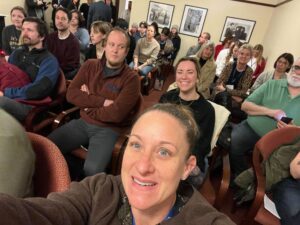
Members from all over Idaho turned out in force for IEA Lobby Day 2024 despite the snowy, cold weather.
“I’m fearful we are getting to a place where the teacher will become the counselor and the doctor and the nurse and, and, and,” Critchfield said. “We need to have a statewide discussion on roles and responsibilities — where this ends and where something else begins.”
Critchfield also addressed confusion among school districts and educators about a controversial new law adopted in 2023 dealing with how educators deal with students in crisis. The bill’s effect, she said, was to have a “chilling effect” on district policies, leaving educators in limbo. Changes are needed, she said.
“We’re not clearing a classroom for one student so that 28 other students don’t have access to their classroom or learning while one student has a meltdown,” Critchfield said.
To address the issue, Critchfield is working with the legislation’s sponsor to make clarifying changes to the law. Also, she told dinner attendees that she’s convened a behavioral health committee made up of education stakeholders and policymakers, including IEA member and Idaho Rep. Soñia Galaviz (D-Boise) to put together recommendations on the issue.
IEA Members Descend on Statehouse Monday
The next morning, Lobby Day participants gathered early at IEA Headquarters in downtown Boise and walked the three blocks to the Statehouse in solidarity.
Throughout the day, they held dozens of meetings with members of the Idaho Legislature as well as private meetings with Gov. Brad Little, Lt. Gov. Scott Bedke and legislative leaders.
“During your meetings today, remember that you are the education expert,” McInelly told members gathered in the Statehouse’s Lincoln Auditorium, home base for Lobby Day activities.
READ ABOUT FIRST-TIME LOBBY DAY ATTENDEES
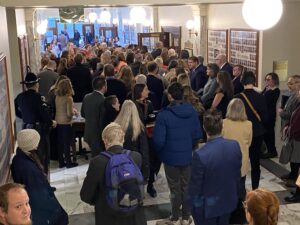
IEA members helped fill two overflow rooms during hearings on a controversial library bill on Monday during Lobby Day 2024. At least one lawmaker attributed passionate IEA member testimony with convincing the bill’s sponsor to withdraw the bill in favor of more moderate legislation.
Several members testified against new legislation providing state oversight for policing library content and those listening to testimony filled two overflow rooms at the Statehouse. While the legislation was approved by the House State Affairs committee in an 11-2 vote, despite overwhelming testimony against the bill, a deal struck Thursday led the bill’s sponsor to withdraw the legislation in favor of a more moderate replacement bill.
Some lawmakers attributed the deal to the passionate arguments against the legislation delivered in committee on Monday.
“Every student who enters my library should be able to find a book that reflects their life and the lives of their family and friends,” said Heidi Robbins, an IEA member and certified teacher-librarian from Rigby. “Book censoring, which this bill does, targets already marginalized communities, including the LGBTQ+ community.”
Additionally, Lobby Day participants attended meetings of the House and Senate education committees, where McInelly delivered remarks introducing them and encouraging lawmakers to build on the momentum favoring public education in recent years. He pointed to 2022’s record 11 percent increase for K-12 spending and 2023’s $250 million investment in better salaries for all educators. He also cited the defeat of several voucher bills and “bad library bills.”
“On behalf of the IEA members in this room and thousands more around the state, thank you for your very important work,” McInelly told the panels. “The momentum you’ve created must not be allowed to die.”
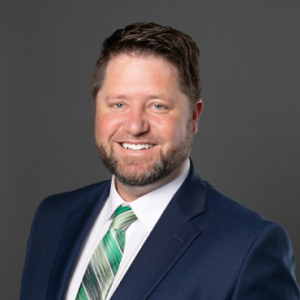
IEA President Layne McInelly
He then encouraged lawmakers to embrace the discussion opened by Gov. Little on finally addressing the backlog of desperate school facilities needs across the state, citing polling of likely voters commissioned by IEA in October.
“So, whether it’s the governor’s plan or another that’s ultimately adopted, it’s time this issue is addressed adequately,” he said. “Our members stand ready to help in any way possible, now that the conversation has finally started.”
He also encouraged the committees to take up the issue of student mental health. In an IEA member survey conducted in October, IEA members identified student behavior and discipline as the top issue they are most worried about in our schools. Nearly eight in 10 said there’s been a significant increase in issues related to student mental health in recent years.
“Committee members, this is an issue that deserves your attention. There’s little question that doing so will save children’s lives,” McInelly said.
